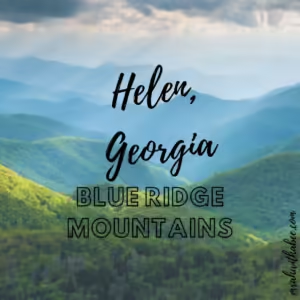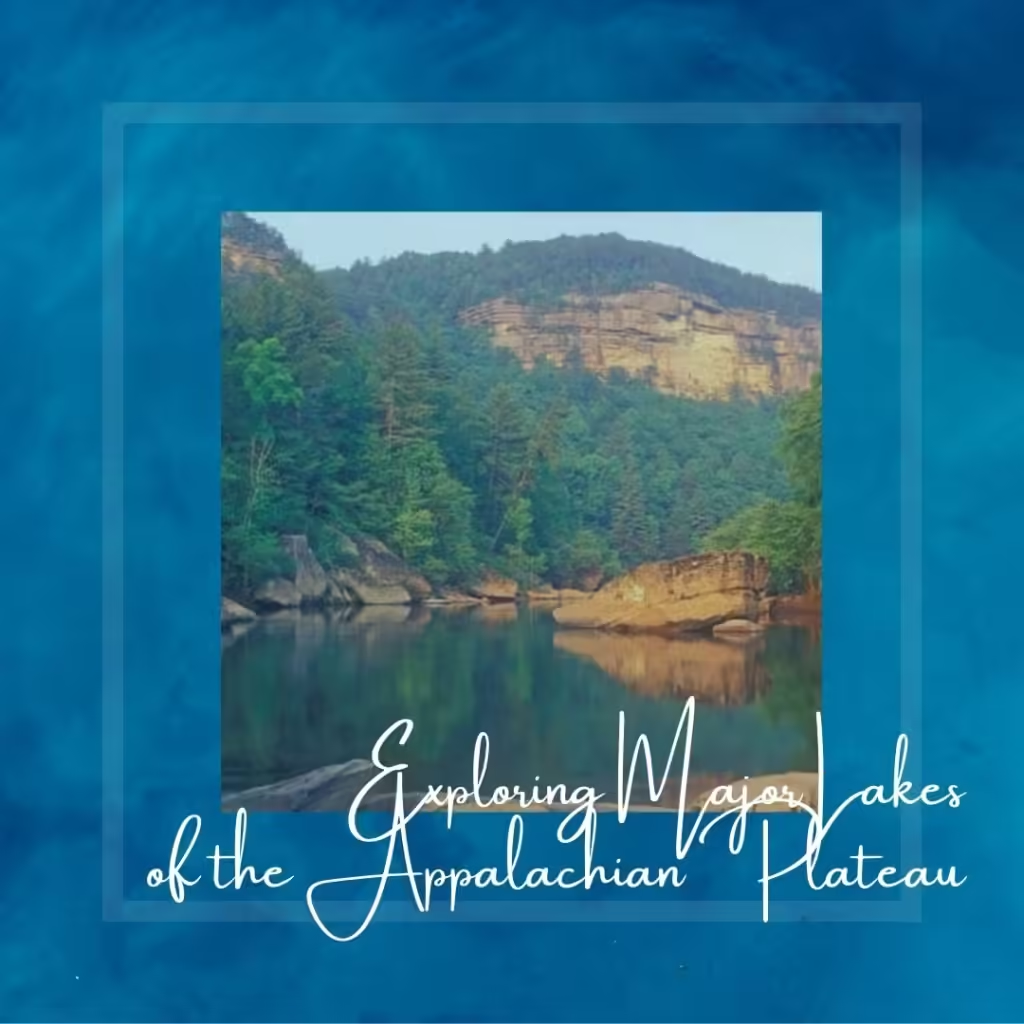The Appalachian Plateau constitutes a unique physiographic and geologic region in southwestern Virginia. While it covers a relatively small area within the state, this province stretches regionally from Alabama to New York, significantly encompassing parts of Kentucky and West Virginia adjacent to Virginia. It is known for its highlands, lush forests, and diverse wildlife. Lakes in this area are not only ecological treasures but also serve as popular spots for outdoor activities and tourism, attracting visitors for boating, fishing, and more. In this post, we will explore the major lakes of the Appalachian Plateau.
Geographical Overview of the Appalachian Plateau
The Appalachian Plateau, stretching from New York to Alabama, is characterized by rugged terrain and diverse geology, which create unique transportation challenges. Navigating this mountainous landscape requires various methods to move goods and connect communities, making logistics essential to life in the area. Additionally, the plateau hosts numerous lakes formed by natural depressions and dammed rivers. These lakes enhance the region’s beauty and are vital for local ecosystems, recreation, and water management. Together, the transportation challenges and the significance of lakes illustrate the relationship between the Appalachian Plateau’s geography and the daily lives of its residents.
Transportation Challenges in the Appalachian Plateau
The Appalachian Plateaus, stretching from New York to Alabama, are characterized by their rugged terrain and diverse geology. This landscape presents significant transportation challenges, necessitating a variety of methods to effectively move goods and connect communities.
Major highways like I-81 and I-75 provide essential routes for trucking, but the mountainous terrain can complicate travel and logistics. Railroads play a crucial role, particularly in transporting heavy goods such as coal, which is vital to the local economy. Additionally, navigable rivers, such as the Ohio River, allow for bulk shipping via barges, although the accessibility of these waterways can vary with the seasons. Air transport is less common but supports the rapid delivery of high-value goods when necessary. Overall, the combination of these transportation methods helps to mitigate the challenges posed by the plateau’s topography.
Significance of Lakes in the Appalachian Plateau
Lakes in the Appalachian Plateau are crucial to local ecosystems, providing habitats for diverse fish, birds, and wildlife. The Atlantic salmon, in particular, relies on these clean, cold waters during its migration to spawning grounds, enriching freshwater habitats with essential nutrients.
Beyond their ecological significance, these lakes are popular recreational spots, drawing visitors for fishing, boating, kayaking, and birdwatching. This influx of tourists supports local businesses in hospitality and outdoor recreation. Overall, the lakes of the Appalachian Plateau are vital to both the natural landscape and the region’s economic health, making them cherished assets for residents and visitors alike.
Major Lakes in the Appalachian Plateau
Lake Erie
Lake Erie, one of North America’s renowned Great Lakes, defines a portion of the northern border of the Appalachian Plateau. Renowned for its expansive surface area, Lake Erie provides a wealth of recreational opportunities, including boating, fishing, swimming, and access to beautiful beaches.
The lake’s diverse ecosystem supports a wide variety of wildlife, including numerous fish species, migratory birds, and other aquatic organisms. This rich biodiversity not only contributes to the ecological health of the region but also enhances its appeal as a tourist destination. Visitors flock to Lake Erie for its natural beauty and outdoor activities, making it an essential component of the local economy.
Attractions near Lake Erie
There are numerous attractions near Lake Erie, offering a variety of experiences, including parks, amusement parks, museums, and lighthouses:
- Presque Isle State Park: This 3,200-acre peninsula features a stunning coastline and a range of outdoor activities, making it an ideal spot for sunset viewing.
- Cedar Point Amusement Park: Located in Sandusky, this family-friendly park boasts thrilling roller coasters, rides, and a beautiful beach.
- Marblehead Lighthouse State Park: Home to the oldest lighthouse on Lake Erie, this park offers scenic views and a glimpse into history.
- Perry’s Memorial: This impressive 352-foot column commemorates those who fought in the Battle of Lake Erie, and visitors can ascend to the top for breathtaking panoramic views.
- Heineman’s Winery: Established in 1888, this vineyard not only serves excellent wine but is also home to Crystal Cave, the world’s largest geode.
- Waldameer & Water World: This family-owned amusement park offers a combination of rides and a water park, all with lovely views of Lake Erie.
- Erie Zoo: A family-friendly destination featuring diverse animal habitats, a petting zoo, and a fun train ride for visitors of all ages.
Lake Chautauqua
Located in New York, Lake Chautauqua may be smaller than its neighbors, but it is cherished for its summer resorts and rich cultural heritage. This picturesque lake attracts visitors year-round for outdoor activities like kayaking, fishing, and swimming.
The vibrant community around Lake Chautauqua enhances its popularity, with local resorts and facilities offering unique experiences for families and nature lovers. The lake also acts as a cultural hub, hosting events that celebrate the arts and local traditions, which strengthen community ties and boost tourism.
With its stunning scenery and diverse recreational options, Lake Chautauqua remains a beloved destination, offering relaxation and a strong sense of community for all who visit.
Attractions near Lake Chautauqua
There are numerous attractions near Lake Chautauqua in Western New York, offering a mix of cultural and outdoor experiences:
- Museums: Explore the National Comedy Center, the Lucille Ball-Desi Arnaz Museum, and the Roger Tory Peterson Institute of Natural History, all situated in Jamestown.
- Chautauqua Institution: This renowned summer destination hosts a variety of globally recognized speakers, performers, and artists, making it a hub for learning and cultural enrichment.
- Outdoor Activities: Enjoy a range of activities such as boating, fishing, hiking, biking, skiing, snowmobiling, and nature walks, catering to outdoor enthusiasts of all kinds.
- Wine Trails: Discover over 20 wineries along the Lake Erie Wine Trail and the Chautauqua County Wine Trail, perfect for wine lovers looking to sample local vintages.
- Golfing: The area boasts more than a dozen public golf courses, providing plenty of options for golf enthusiasts.
- Shopping and Dining: Explore charming towns and villages that offer a variety of shopping and dining experiences.
- Local Communities: Visit nearby communities such as Benus Point, Westfield, Mayville, and Jamestown to experience local culture and hospitality.
Lake Cumberland
Lake Cumberland, a vast reservoir in Kentucky, is famous for its stunning scenery and diverse recreational activities. Originally built for flood control and hydroelectric power, it has become a favorite spot for outdoor enthusiasts.
Spanning over 65,000 acres, the lake features numerous coves and islands, creating a picturesque landscape for exploration. Its clear waters attract boating enthusiasts for sailing, jet skiing, and cruising, while anglers fish for bass, crappie, and catfish.
With excellent lakeside camping options, visitors can immerse themselves in nature and enjoy the tranquil surroundings. Lake Cumberland is a beloved destination for families and adventure seekers alike.
Attractions near Lake Cumberland
Lake Cumberland, Kentucky, offers a wealth of attractions, including state parks, marinas, and other exciting destinations:
- State Parks:
Discover two unique state parks, each with its own charm:
- General Burnside Island State Park: This island park features a golf course, campground, and boat ramp for easy lake access.
- Lake Cumberland State Resort Park: This park features sandy beaches, hiking trails, tennis courts, disc golf, and a marina with rentals.
- Houseboats: Lake Cumberland, the “Houseboat Capital of the World,” offers a large fleet of rental houseboats for unique experiences.
- Fishing: The lake is great for fishing, offering plenty of striped bass, crappie, bluegill, and catfish.
- Cumberland Falls State Resort Park: Known as the “Niagara of the South,” this park has a stunning waterfall, hiking trails, and camping.
- Historic Mill Springs Mill: Visit this restored water-powered grist mill, surrounded by picnic areas and nature trails for relaxation.
- Wayne County Museum: This museum highlights the rich history of Wayne County, offering insights into the local culture and heritage.
- Mini Indy Go Kart Track and Family Fun Center: A fantastic family-friendly attraction that promises fun and excitement for visitors of all ages.
Beech Lake
Beech Lake in Tennessee offers a serene and peaceful environment perfect for fishing, boating, and hiking. Though smaller than larger lakes, it is cherished by locals for its charm and natural beauty. The lake provides an intimate connection with nature, making it an ideal destination for family outings and peaceful recreational activities.
Surrounded by lush landscapes and wildlife, Beech Lake invites visitors to unwind and enjoy the great outdoors. In addition, the families can enjoy quality time fishing from the shore or exploring scenic hiking trails in the area. The calm waters are perfect for leisurely boating, allowing for a relaxing day on the lake. Beech Lake offers a tranquil escape for reflection and outdoor enjoyment, perfect for picnics and fishing.
Dale Hollow Lake
Dale Hollow Lake, on the Kentucky-Tennessee border, is known for its clear waters and top smallmouth bass fishing. Beyond its reputation for fishing, Dale Hollow Lake offers a wealth of recreational activities. Boaters enjoy smooth sailing on serene waters, while campers find picturesque spots for tents or cabins. The surrounding natural beauty creates an ideal backdrop for family outings, weekend retreats, or peaceful escapes into nature.
In addition to its recreational appeal, Dale Hollow Lake plays a significant role in regional conservation efforts. The lake and its watershed are vital for maintaining local ecosystems, supporting diverse wildlife habitats, and providing clean water resources. Additionally, the conservation efforts enhance its natural beauty, ensuring it remains a cherished destination for future generations. Whether you’re looking to fish, boat, camp, or simply immerse yourself in nature, Dale Hollow Lake offers an unforgettable experience.
Other Notable Lakes
Other smaller lakes in the Appalachian Plateau include Summersville Lake in West Virginia and Raystown Lake in Pennsylvania. While lesser-known, these lakes provide beautiful scenery and recreational options, adding to the region’s charm.
Conclusion
The Appalachian Plateau’s lakes are more than just scenic spots—they’re integral to the region’s ecosystem, recreation, and economy. From Lake Erie to Beech Lake, these waters provide beauty, activities, and habitats that define the Plateau.
FAQs
- What is the Appalachian Plateau?
The Appalachian Plateau is a region in the eastern U.S. with highlands, forests, and diverse terrain. - What are the major lakes in the Appalachian Plateau?
Key lakes include Lake Erie, Lake Chautauqua, Lake Cumberland, Beech Lake, and Dale Hollow Lake. - Why are lakes important in the Appalachian Plateau?
Lakes support ecosystems, provide recreation, and contribute to local economies. - What activities can you do on Appalachian Plateau lakes?
Popular activities include fishing, boating, hiking, and camping. - What type of fish can be found in these lakes?
Fish species vary but often include bass, trout, and catfish, depending on the lake. - Are there any conservation efforts for these lakes?
Yes, conservation groups work to combat pollution, invasive species, and habitat preservation. - What makes Lake Erie unique?
Lake Erie is one of the Great Lakes and is known for its size, diverse ecosystem, and beaches. - How does Lake Cumberland support the local area?
It offers flood control, hydroelectric power, and recreational activities, supporting tourism. - What is Dale Hollow Lake known for?
The Dale Hollow Lake is famous for clear waters and fishing, particularly for smallmouth bass. - What are other lesser-known lakes in the area?
Summersville Lake and Raystown Lake are smaller but offer great outdoor experiences.
We have another interesting post about Helen in the Blue Ridge Mountain, check it out

Thank you for reading, for more interesting articles visit our homepage.



